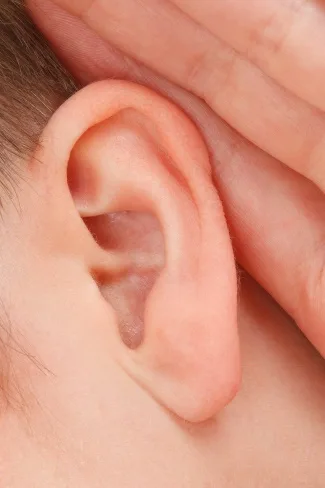Table of Contents
If you’re on a journey of self-improvement, you’ll probably be interested in a personal development plan to boost your communication skills.

Hi. Ian here. Welcome! This article will help you create a personal development plan to sharpen your communication skills.
Good communication is essential in every part of life, from personal relationships to your career. When you communicate well, you build trust, solve problems faster, and reach your goals more easily. But poor communication can cause confusion, tension, and missed chances.
If you’re ready to improve, a personal development plan is a smart first step. It’s a roadmap for your goals and actions. It can be simple or detailed — but it should fit your needs.
Here’s how to get started: Identify your goals. Do you want to speak more confidently in public? Communicate better with your boss or team? Handle conflicts more smoothly? Once you know what you want to achieve, you can build a plan that makes it happen.
- Assess your current skills. What are your strengths and weak spots as a communicator? Knowing where you stand helps you target what needs work.
- Develop a plan. With your goals clear and areas to improve noted, map out specific steps. Add realistic timelines and deadlines to stay on track.
- Take action. Follow through with your plan. Set aside time weekly to practise — read about communication, rehearse speeches, or take a class.
- Get feedback. Ask mentors, coaches, or trusted friends for feedback. An outside view helps you see progress and spot what to refine.
Practical tips to remember:
- Be clear and concise. Use plain language. Avoid jargon or complex words. Get to the point — no rambling.
- Be an active listener. Give full attention, make eye contact, nod, and ask questions. Summarise what’s been said to show you understand.
- Be respectful. Disagree politely. Focus on the topic, not personal attacks. Be calm and clear.
- Be open to feedback. Take constructive criticism. It’s one of the fastest ways to grow.
Improving communication takes effort, but it’s worth it. Strong skills will benefit you in every part of life. Start your personal development plan today!
(Resources: Forbes, Harvard Business Review, Psychology Today)
Thanks for reading — I hope this sparks ideas to boost your skills.
Here are 7 excellent examples.
Communication skills are vital. They’re how we connect with others — and ourselves.
“What’s the greatest advice I give? Develop excellent communication skills.”
Julie Sweet
Improving these skills isn’t hard — just put in the effort.
7 Tips To Improve Communication Skills
Individual Development Plan Examples: Communication Skills
Record Yourself Communicating
Before presentations, speeches, or group talks, record yourself speaking. Listen for mistakes, awkward parts, or areas to expand or cut. Hearing your own voice helps you adjust tone, pace, and delivery. It’s an easy way to see where you can improve and get real results.

Learn to Listen
“Our ability to listen deeply while engaging in conversation is an important aspect of tuning in and staying tuned in.”
— Cheri Torres
Communication goes both ways. Listening is just as vital as speaking. Pay attention to what the other person says — words, tone, and body language. Great listening builds trust and helps you learn from others.
Listening is key to building good relationships. When people feel heard, they’ll listen to you in return.
Learn To Manage Your Emotions
Stay calm when you disagree. Hear the other side and respect their view. If someone heckles you during a speech, don’t let it throw you — stay focused and carry on. You can’t control others, but you can control your reaction.
Improve Your Nonverbal Communication
Body language makes up 75% of human communication. Your expressions, posture, and eye contact must match your words. If they don’t, your message loses impact. Strong nonverbal skills help you connect better.
Work On Your Confidence Level
Confident speakers inspire trust. Build yours by planning what to say, researching your topic, and practising until you know it inside out.

Be Receptive To Feedback
Watch how your audience responds. Verbal and nonverbal feedback shows what’s working and what isn’t. Welcome constructive criticism — it helps you grow faster.
Stick To The Point
Stay focused. Avoid extra fluff. Make sure your points are clear and useful for your listeners. If needed, ask questions to see if they’re following along.
How To Improve Communication Skills
Action Plan To Improve Communication Skills
Think about how you communicate now. Write it down, then decide how you’ll improve or add new skills over time.
If you want to become a better writer, join a course. Preparing for a speech? Research your topic, audience, and venue, then practise until it feels natural.
Practising your delivery builds confidence — and your audience will listen and understand better.
Interpersonal Skills
Interpersonal skills help you connect with others. They’re essential at work and in life. Examples include active listening, empathy, conflict resolution, and clear communication. Practise listening and empathy to build trust and respect. When conflicts arise, handle them calmly and respectfully. Find common ground and solutions that work for everyone.
Personal Development Plan To Improve Communication Skills
If you want to level up your communication skills, create a plan. Interpersonal and communication skills are building blocks of life. A strong personal development plan will help you grow.
Example:
- Set clear goals for better communication.
- Turn off your phone for 30 mins daily to chat face-to-face.
- Read a good book for an hour each day.
- Listen without interrupting for 30 mins daily.
- Meet a new person each week.
- Watch your body language during conversations for a week.
- Stay open-minded for a month — no judging others’ opinions.
- Talk to people from different backgrounds for 2 months.
Almost everything you do involves communication.
FAQS
How can I communicate better with others?
You need to learn how to listen more and to be more articulate when you speak. You also need to be aware of nonverbal communication and read social cues appropriately.
Final Words
When you know your strengths and work on your weaknesses, you’ll communicate better and connect with the world around you.
Wishing you Health, Wealth, and Happiness
